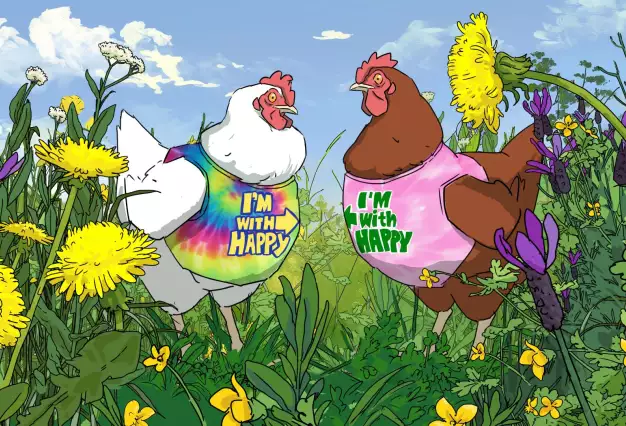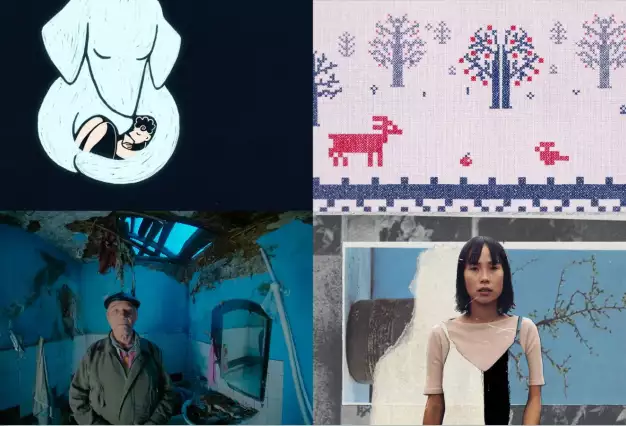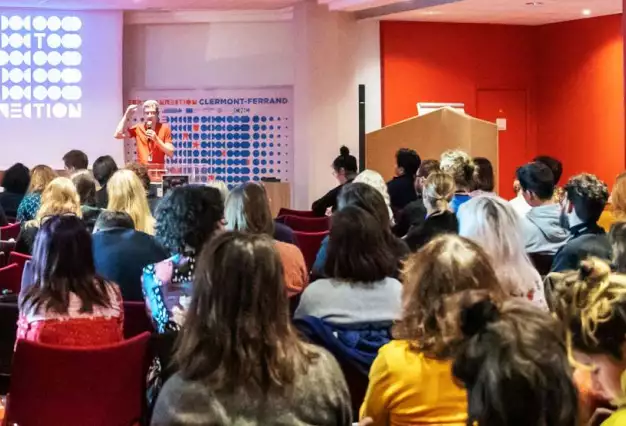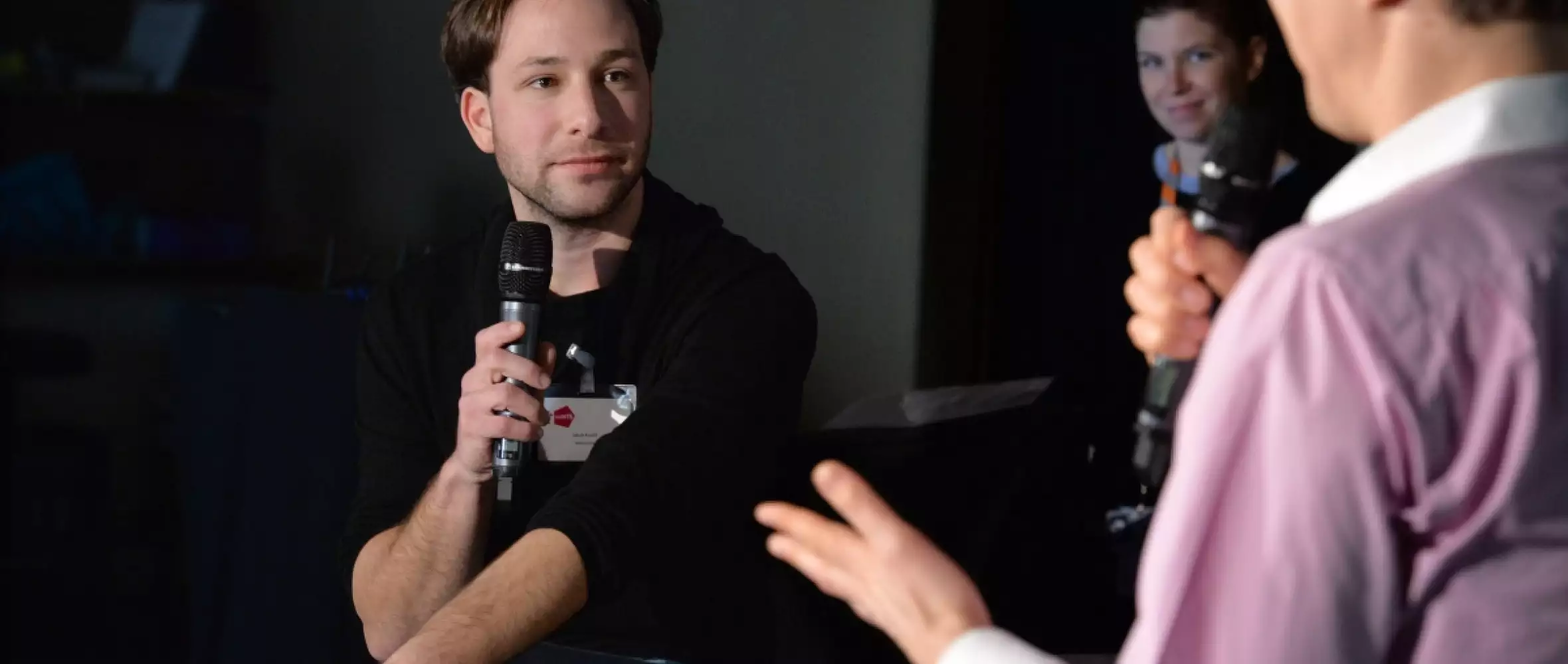
15 July 2016
Meet the New Czech Talent Jakub Kouřil
Meet the New Czech Talent Jakub Kouřil

Director, screenwriter and visual artist Jakub Kouřil is undoubtedly one of the contemporary talents of Czech animation. He graduated from Tomáš Baťa University in Zlín and continued his studies at FAMU’s animation department. He also completed an internship at the famous art and design school in Paris, ENSAD. Kouřil is currently preparing his professional debut.
Interview by Denisa Štrbová for CZECH FILM / Summer 2016
Two student films brought you fame: M.O. (2012), the story of an old lady who orders a mechanical grandpa by mail to put an end to her loneliness reached the final of the Student Academy Awards 2013 and won the Magnesia Award for Best Student Film. The Little Cousteau (2013) was awarded at the Palm Springs, Montevideo and Blue Ocean (Florida) film festivals and many other places. What inspired you to make this film?
The film is an homage to Mr. Cousteau, whose documentaries I watched on TV when I was a child. For a little boy from a Central European country, the world of octopuses and Pacific fish was extremely remote but all the more attractive. I often imagined I was diving into the depths and discovering new, unknown animals. But the idea to use this subject in a film came much later, thanks to my internship at the art school in Paris. I fell in love with the city and became a real Francophile. The Little Cousteau is a mixture of various memories I have. Only now do I recognize another source of inspiration for my character – the French book Little Nicholas, which is beautifully illustrated by my favourite cartoonist, Jean-Jacques Sempé.
The animated story of a little boy in a snow-covered city who longs for deep-sea adventures charmed not only the audience at numerous festivals but even relatives of Cousteau who complimented you for your sensitive and original treatment of the material. Did you expect that the film would appeal to such a wide range of viewers of all ages around the world?
Nowadays, short film is a difficult genre to sell, and it’s not easy to get it into the cinema or on TV. International film festivals with their large audience bases are often the only hope for these films. So already at the stage of an idea for a film it is useful to consider this and choose a universally understandable story that could appeal to many viewers, regardless of their age or nationality. But on the other hand, it is often only a matter of good luck (or coincidence) to find such a story.
The fact that the film is without dialogue, doesn’t need subtitles and is made for young audience can certainly be a plus, but it still doesn’t guarantee a positive audience response. It helps with distribution, though. The success of The Little Cousteau really surprised me. And it inspired me to continue making films.
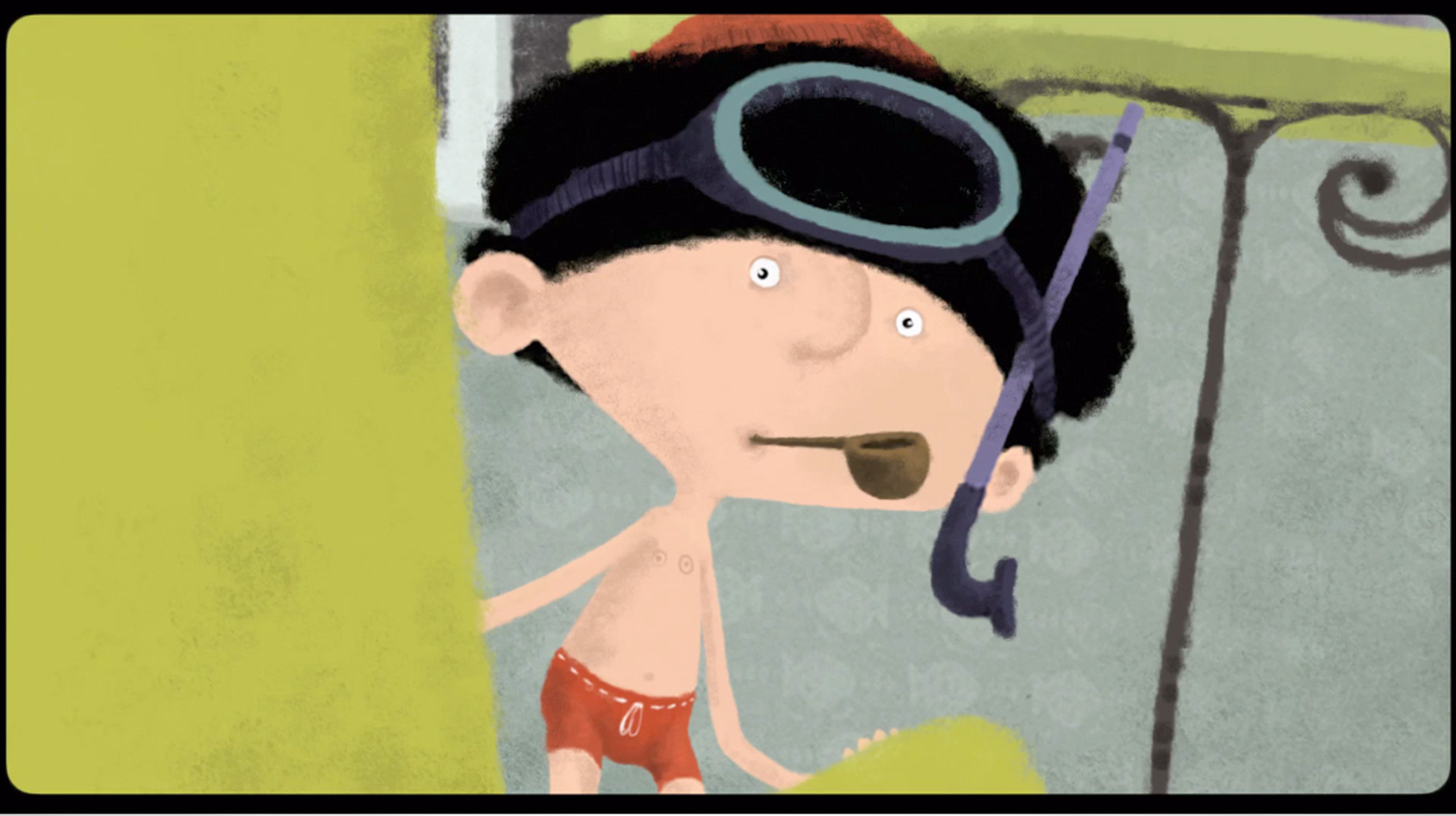
At the moment you are preparing the short film Waterman, produced by Negativ. The film is based on a short story written by your colleague Kristina Nedvědová, who also collaborated on the script of The Little Cousteau. What is the story about?
As I re-read the story, I recognized in the character of Waterman certain similarities with my own father and realized the subject matter was even closer to me than I had thought. In the figure of Magdalena I increasingly saw myself, travelling from Prague to visit my parents in Moravia and explain to them yet again why I wasn’t a mathematician, a brilliant biologist or at least a wealthy businessman. Waterman is a film about mutual understanding and reconciliation between these two worlds. It tells us that each of us should try to be what we really are.
Is Waterman a live-action film?
Waterman is not completely without animation. It is a combination film – innovative in its artistic concept, and this kind of filmmaking attracts me most. I like the stories where real life is confronted with something magical, even surreal. That is why a grandmother lives with a mechanical grandfather, or a boy encounters an octopus in a city covered in snow. In literature they call this genre magic realism, and this phrase expresses exactly the way I think about storytelling.
The project Waterman was presented at this year’s Clermont-Ferrand International Short Film Festival in the Euro-Connection Co-production Forum and subsequently discussed at the Berlinale Talents’ Short Film Station. How did you profit from this meeting?
I have participated at several international workshops before, for example last year at Wiesbaden, as part of the East West Talent Lab. But the one in Berlin was exceptional and the most beneficial for me. Each participant had a mentor – a European script editor or screenwriter, which provided the opportunity to deal with every script really thoroughly. I think I am not the only one, who – after the discussions is Berlin – decided to make bigger changes to the script.
![]()
What attracts you to filmmaking, and what kind of films would you like make in the future?
I have enjoyed drawing and painting since I was a child, and I’ve always admired the work of book illustrators. With time I realized that it is not that important how a picture looks like or how perfectly it is drawn. What IS important is the story behind it. Good illustration, painting or photography always rests on a good story. Now I know that the storytelling is the main thing that attracts me to illustration. And both perfectly merge in animation in film. However, I am more and more attracted to live-action film.
Who have influenced you most during your studies, and in what way?
To simplify it, it was Jan Švankmajer who inspired me to become an animation filmmaker. Paradoxically, his work no longer appeals very much to me today, but I used to know it by heart. I mainly admired the combination film Faust. I was fascinated with the range of artistic possibilities that film as a medium offers. During my studies I discovered the power of silent film. I was also greatly impressed by The Return of Russian director Andrey Zvyagintsev, which proves it is not necessary to offer the viewer a complete story. From Czechoslovak filmmakers I was most influenced by Karel Kachyňa (Jumping Over Puddles) and Juraj Herz’s The Cremator. They are inexhaustible sources of inspiration for me.


